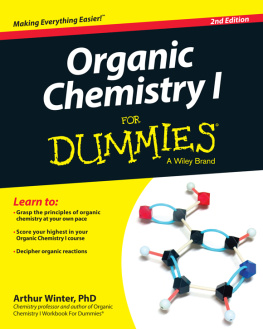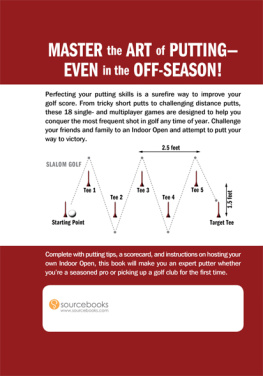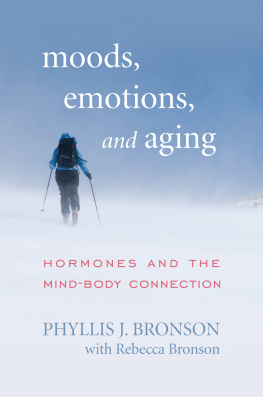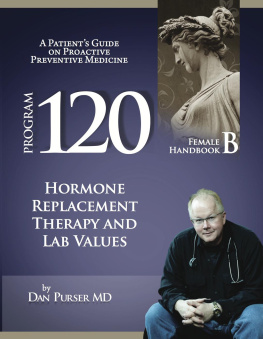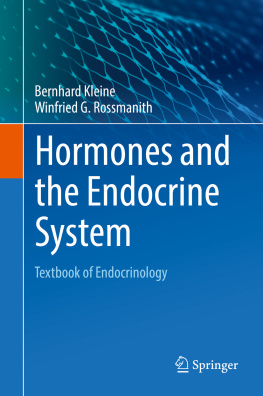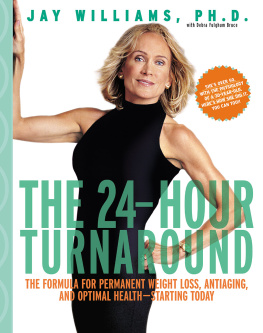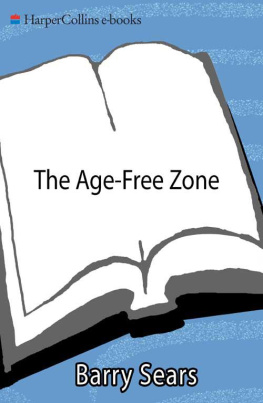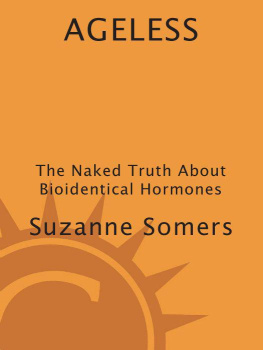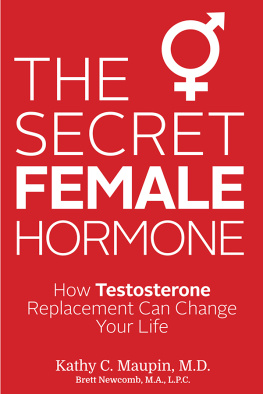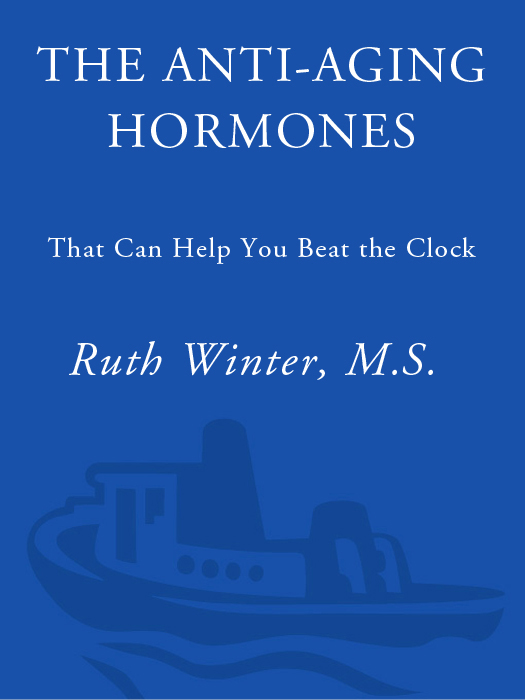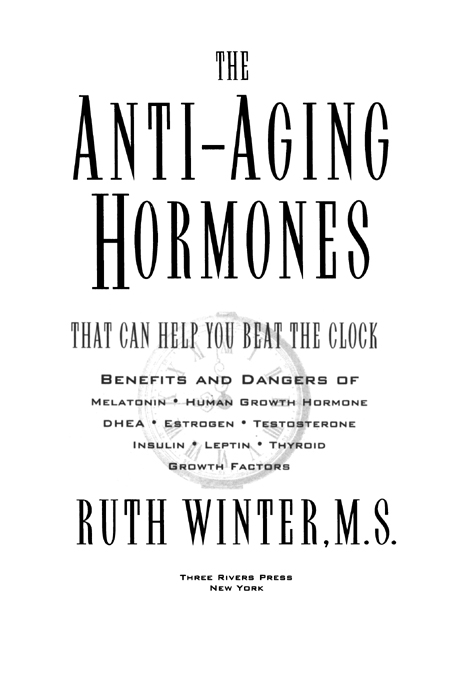Also by the Author
Super Soy
A Consumers Guide to Medicines in Food
A Consumers Dictionary of Medicines
A Consumers Dictionary of Cosmetics Ingredients
A Consumers Dictionary of Food Additives
A Consumers Dictionary of Household, Yard, and Office Chemicals
Poisons in Your Food
Ageless Aging
Cancer-Causing Agents
How to Reduce Your Medical Bills
Endocrine illustration on by Jennifer Harper.
Copyright 1997 by Ruth Winter
All rights reserved. No part of this book may be reproduced or transmitted in any form or by any means, electronic or mechanical, including photocopying, recording, or by any information storage and retrieval system, without permission in writing from the publisher.
Published by Three Rivers Press, a division of Crown Publishers, Inc., 201 East 50th Street, New York, New York 10022. Member of the Crown Publishing Group.
Random House, Inc. New York, Toronto, London, Sydney, Auckland
http://www.randomhouse.com/
Three Rivers Press and colophon are trademarks of Crown Publishers, Inc.
Library of Congress Cataloging-in-Publication Data
Winter, Ruth, 1930
The anti-aging hormones that can help you beat the clock : benefits and dangers of : melatonin, human growth hormone, DHEA, estrogen, testosterone, insulin, leptin, thyroid, growth factors / Ruth Winter, 1st ed.
p. cm.
Includes bibliographical references.
1. Longevity. 2. AgingHormone therapy. I. Title.
RA776.75.W54 1997
612.67dc21 9712228
eISBN: 978-0-307-82935-1
v3.1_r1
To Arthur Winter, M.D., my personal physician
CONTENTS
Introduction
Hormones to Beat the Clock
- The Chemicals That Control Your Ripening
They Are Literally in Your Head - Stress and Maintaining Youthful Immunity
DHEA and Thymus Hormones - Growth Hormones
Restoring Muscle, Bone, Fitness, and Well-Being - Growth Factors
Hormone Helpers to Restore and Rejuvenate - Thin WithinHormonal Control of Weight as the Years Go By
Estrogen, Leptin, Thyroid, and Insulin - Melatonin
The Time of Your Life - TestosteroneReplacement Therapy and Virility
Avoiding Age-Associated Dysfunctions - EstrogenSexual Desire, Desirability, and Ability
Avoiding Age-Associated Dysfunctions
ACKNOWLEDGMENTS
The author wishes to thank Samuel Dower, M.D., associate director of the Joslin Clinic and endocrinologist on the staff of St. Barnabas Medical Center, Livingston, New Jersey, and all the other busy researchers who gave of their valuable time to describe for this book their exciting investigations.
INTRODUCTION
H ORMONES TO B EAT THE C LOCK
How old are you?
How fast are you aging?
Your answers lie not in the date your mother gave birth to you nor with the number of wrinkles on your face. Your true age is ordained by extremely potent chemicals your body manufactures, known as hormones.
Tremendous research efforts are now under way, fueled by the federal government, pharmaceutical manufacturers, and universities, to identify, understand, and use hormones to prevent or reverse signs we associate with aging. The stakes are high because the largest generation in U.S. history and one-third of our present populationthe baby boomerswill begin turning sixty-five years old in 2011.
Ultimately, however, the boomers will find themselves part of another major demographic movementthe explosive growth in the numbers of very old people living to age eighty-five and beyond. From 1960 to 1994, these oldest old, who in large portion are quite frail and poor, have increased by 274 percent. Their numbers are expected to reach nearly 7 million by 2020 and soar to at least 19 million and possibly to 27 million or higher by 2050.
Phyllis Moen, Ph.D., the Ferris Family Professor of Life
The number of old people is not as important as their health and vitality. If they can be youthful, active, and productive, it will benefit not only them but the younger generation, who could then avoid the financial and emotional burdens of caring for millions of sick, dependent elderly, including their parents, grandparents, and even great-grandparents.
Can we beat the clock and stay youthful, happy, and healthy?
Hormones are our bodys timekeepers. They are major principals in determining how long and how well we will live.
What are hormones? The word hormone is derived from the Greek word hormao, meaning I arouse to activity. Hormones are secreted by our endocrine glands, which spurt them directly into our bloodstream. Although a hormone may be circulated throughout our body, it affects only a specific target organ or organs. It is not unlike a direct telephone call. The more of the hormone in our blood usually the more active the target organ becomes. The amount of the hormone released depends upon our bodys needs. If the feedback from our body is faulty or the endocrine glands fail to produce enough of the needed hormone upon demand, all sorts of physical and mental disorders may occur. This hormonal imbalance happens to all of us as we age but in some faster than in others.
The largest of the hormone secretors, the pancreas, has an average weight of less than three ounces. The smallest, the mysterious pineal, is about the size of a grape seed. All the others togetherthe thyroid, the four parathyroids, the twin adrenals, the pituitary, the thymus, and the paired ovaries of women or testes of menweigh between four and seven ounces. Yet, as tiny as they are, these mighty glands oversee our lives and behavior. They control the digestion of our food and its transformation into blood, bone, muscles, and brain. They make us tall or short, fat or thin. They regulate our heartbeat and affect the workings of our liver and kidneys. They set the time when a girl becomes a woman and a boy a man. They determine fertility, sexual behavior, and personality. When we are attacked by a foeeither human or germthey mobilize our defenses.
All the hormone secretors work in concert. They are a grand chemical orchestra that when playing harmoniously keeps us healthy and happy. But as time goes by, some of the players weaken and become discordant, and we develop signs we associate with agingsuch as weakened immunity, wrinkled skin, ebbing muscular strength, insomnia, and loss of sexual desire.
New understanding of how hormonessome long identified and others newly discoveredperform is leading to great strides in beating the clock. Scientists are now ablebetter than ever beforeto measure hormone levels as we age. Researchers are gaining more and more understanding of what causes the deterioration of the body as we live year by year, and they are attempting to prevent or reverse some of the changes by replacing what is lost with natural or synthetic hormones. The catch is, however, that because these chemicals are so powerful in minute amounts and work in such exquisite balance, supplementing one or two may throw off the harmony of the rest, sometimes resulting in disasters such as cancers or heart attacks. Furthermore, hormones are not the only factors in aging. While they may time biological clocks and affect all our organs and tissues, heredity, wear and tear, and exposure to environmental conditions all play roles in how long and how well we live.



